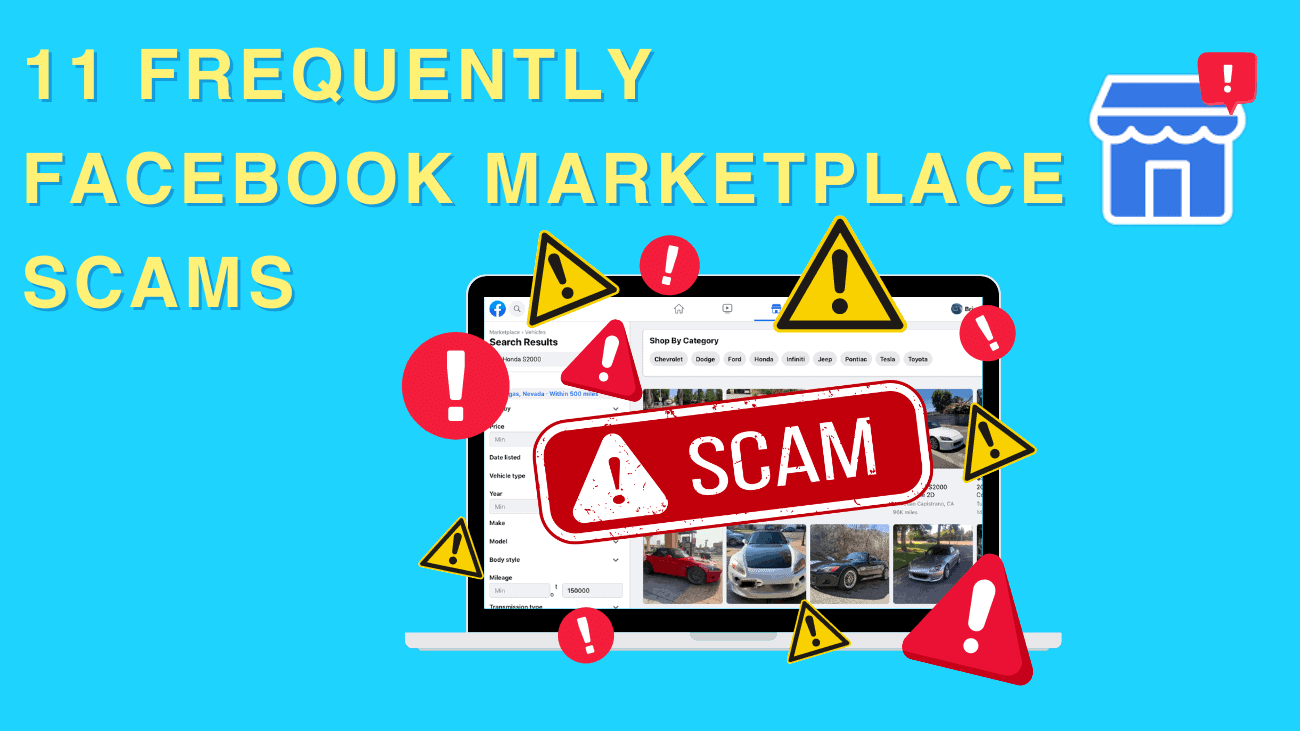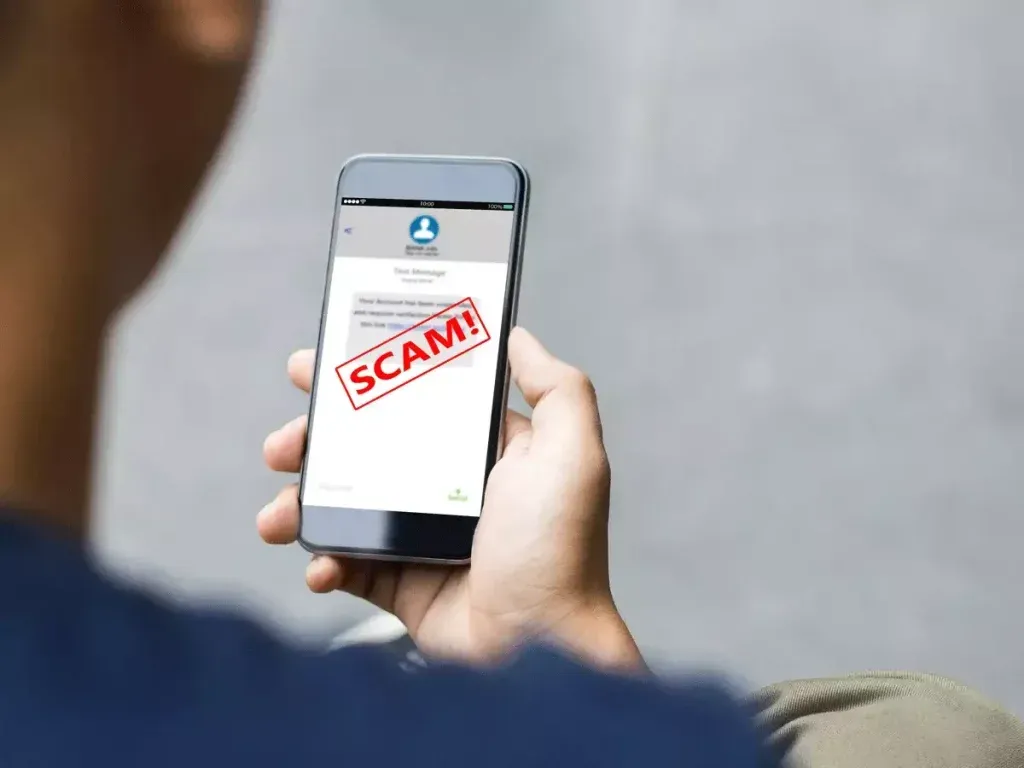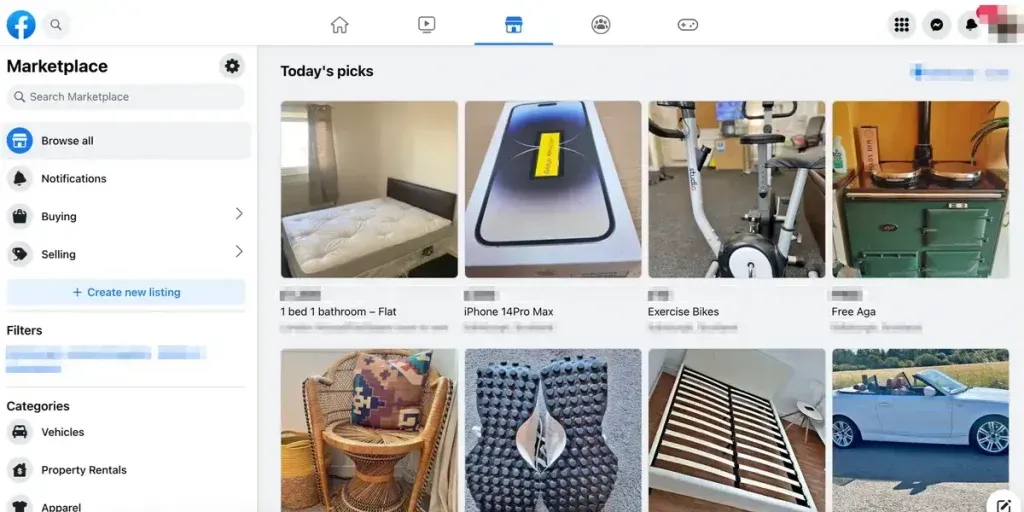Facebook Marketplace has become a go-to platform for individuals worldwide looking to sell items. However, it’s also a hotspot for scams, where individuals attempt to defraud others of their money. Whether you’re browsing for items or listing something for sale, it’s essential to be vigilant. In this guide, we’ll explore various types of Facebook Marketplace scams and provide tips on how to identify and avoid them.
11 Frequently Facebook Marketplace Scams
1. Scams with gift cards
Scams on Facebook Marketplace come in many forms. Among them, gift card scams are prevalent. They’re relatively simple to avoid. These scams often involve anonymous payment links and requests for payment with gift cards. Sellers may also encounter overpayment schemes.

As a buyer, it’s crucial to prioritize face-to-face meetings with sellers, thoroughly inspect the item, and only proceed with payment afterward. Avoid making any transactions in advance, regardless of how trustworthy the seller may seem.
Identify this scam: If the buyer or seller mentions gift cards, cryptocurrency, or any form of untraceable currency during the discussion, exercise caution as it’s likely a scam.
2. Fraudulent Payments and Representative Scams
For sellers, another prevalent scam involves individuals posing as representatives of specific companies, often attempting to obtain access to your account by soliciting your credentials.
Exercise caution regarding fake payment confirmations and scammers who engage in overpayment schemes, only to request a full chargeback after you’ve returned the excess amount.
Identify this scam: Genuine company representatives won’t contact you individually to offer personal favors that benefit you. If such a situation arises, it’s likely a scam. Avoid immediately refunding the overpaid amount.
3. Phishing Scams
Clicking on links from others can be risky. These websites might steal your data and prompt malware installation on phones.
Elderly individuals are particularly vulnerable to falling victim to phishing scams. A tempting offer is hard to resist, and scammers exploit this vulnerability by listing items at prices that seem too good to be true. If a deal appears suspiciously good, exercise caution.
Identify this scam: If a seller or buyer sends you a dubious link on Facebook Marketplace, it’s advisable to terminate the transaction immediately, as such links could lead to phishing websites.
4. Wealth Distribution Scams
The infamous “Hi, I’m xxx, a Prince from xxx country with abundant wealth to distribute” scam is well-known. It’s crucial to avoid clicking on any links associated with such messages. Even if you happen to click and encounter text claiming you’ve won a lottery, it’s best to steer clear. Unfortunately, many individuals, particularly the elderly, fall victim to these scams due to their trusting nature.
Identifying this scam: If you receive a message from someone claiming to be wealthy and offering to share their savings with you, it’s undoubtedly a scam.
5. Immediate Interest Scams
The primary purpose of using Marketplace is to swiftly sell unnecessary items, yet scammers exploit your eagerness. Refrain from sharing your contact details right away; instead, scrutinize the buyer’s profile for legitimacy or negative feedback.
Identify this scam: If the individual hastily requests your location and phone number within the initial messages, it’s likely a scam.
6. Bait and Switch Scams
To avoid falling victim to product scams, always meet sellers face-to-face and refrain from payment until you have the product in hand. Many Marketplace users anticipate receiving precisely what they ordered, only to be deceived with a vastly different item, such as a counterfeit or replica.
These scams often go unnoticed until the product is received, or the seller fabricates falsehoods regarding shipping and payment. In some instances, faulty or stolen items may be sold.
Identify this scam: Arrange an in-person meeting with the seller and review their feedback to verify authenticity.
7. Shipping Scams
A prevalent scam involves fake shipping, where the seller feigns shipment without dispatching the item. Crafting counterfeit shipping labels and payment confirmations is effortless in the digital age. Combat this by meeting the seller in person or ensuring payment only upon confirmation of shipment via the shipping company’s official website.
Identify this scam: Detection is challenging; rely on seller reviews and consider terminating the transaction. Always prioritize in-person dealings.
8. Payment Later Scams
When selling, insist on full payment upfront. Reject any proposals from buyers to pay partially now and the remainder later, as this often results in lost funds. This rule applies whether selling online or in person.
Identify this scam: Refuse any offers for deferred payments; it’s a warning sign of potential loss.
9. Stolen Items from Facebook Marketplace
Some Marketplace sellers may attempt to peddle stolen goods, often discernible by their urgency to sell for quick cash or their inability to provide valid purchase documentation. Engaging in such transactions could lead to legal repercussions.
Identify this scam: Watch for suspiciously low prices compared to market rates and scrutinize profiles with numerous items listed at unrealistically low prices.
10. Defective Product Scamss
Electronics sales are rife with scams involving concealed defects. Take the time to thoroughly examine products before purchasing, ideally with the assistance of someone knowledgeable. Only proceed with the transaction if the item meets your expectations after careful inspection.
Identify this scam: Meet the seller in person, thoroughly inspect the product, and test its functionality before committing to the purchase.
11. Rental Scams
Exploiting individuals with counterfeit property rental listings is a common deceit. Scammers fabricate listings using images sourced from Google searches and demand a security deposit upon expressing interest. Additionally, they may request a fee for property viewing, often insisting on wire transfers. Beware of listings offering lease-free properties; the intent is solely to extract money from unsuspecting individuals.
Identify this scam: Scrutinize the photos meticulously and conduct a reverse image search using Google Lens or Google Image search. Refrain from making any advance payments.
Conclusion
So, there you have it! Armed with these insights and tips, you’re ready to tackle Facebook Marketplace with confidence. Trust your instincts, give listings a second glance, and always prioritize your safety. With a little caution and street smarts, you can breeze through your buying and selling adventures hassle-free. Take care and happy Marketplace hunting!



